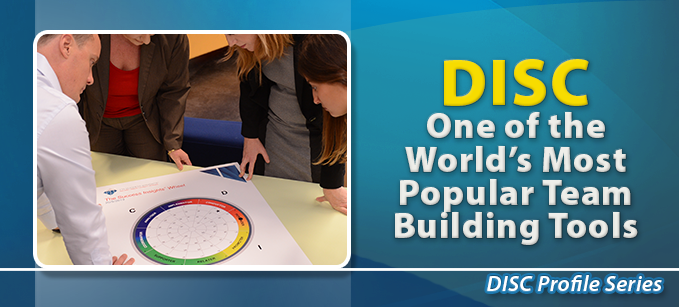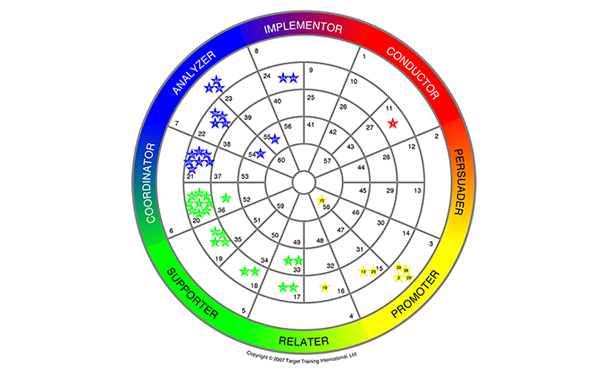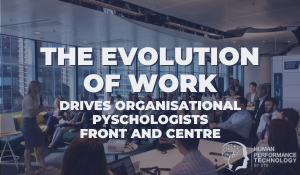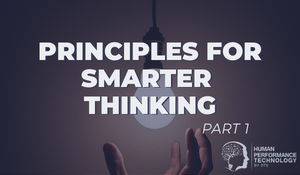DISC: One of the Most Popular Team Building Tools

Managing relationships is a necessary and vital skill in business. The ability to work well with people of different backgrounds and personalities, with diverse strengths and weaknesses, can make work both intellectually complex and emotionally challenging. Since people aren’t clones and don’t roll off assembly lines, no one person is exactly the same as the next, which makes the ability to adapt to different types of people and work well in a team environment one of the most highly valued and in-demand business skills.
With the rapid rise and adoption of the concept of emotional intelligence — a term that has come to replace "people skills” and “soft skills" — most business people would now acknowledge that knowing how to deal with others effectively is the elusive x-factor that can make or break a career. This notion is perhaps best captured by the popular corporate maxim, “IQ gets you hired, EQ gets you promoted."
The hardest competencies to master in business (and life) include things like communication, empathy, influence, trust, teamwork and leadership. In other words, skills that centre around working well with others. A big part of what makes this challenge so complex is that everyone has different beliefs, values, motivations, task preferences and wide-ranging views about how work should be done. Personality conflicts are a common part of group dynamics that can interfere with productivity, which are often preventable when people have a better understanding of what makes their colleagues tick.
All people — regardless of age, race, culture or gender — share similar behavioural characteristics. One person you meet might be talkative, sociable and loud; the next might be quiet, shy and methodical. Some people like structure; some don’t. Some like to move at a fast pace; others prefer to take their time. These sorts of behavioural quirks can make “clicking" with someone similar to you feel like a breeze, but for those who are not, it can make life tricky, challenging, and even exhausting at times — particularly if you are trapped in an enclosed office space with them for 8-10 hours a day!
This is where a behavioural assessment like DISC comes in handy.
DISC is the world's best known behavioural assessment and one of the most popular team building tools, taken by millions of people every year and estimated to be in use by 75% of Fortune 500 companies. The DISC model is a simple four-quadrant framework that measures observable human behaviour. Specifically, it identifies the four most common groupings of behavioural tendencies found in people all over the world.

At a glance, the DISC acronym stands for:
- Dominance (tends to be direct, forceful, assertive, fast paced, etc.)
- Influence (tends to be outgoing, talkative, trusting, enthusiastic, etc.)
- Steadiness (tends to be steady, stable, easy going, amiable, etc.)
- Compliance (tends to be careful, precise, analytical, cautious, etc.)
In other words, DISC measures how people prefer to act and communicate. The overall preference that individuals have for these four factors is referred to as their behavioural “style.”
Most people have a clear preference for one or two of the four behaviours. In many cases, this natural preference will be formed at a young age and remain relatively stable throughout their lifetime. This information becomes invaluable to know in the workplace.

(Above: An example "group wheel" — a useful visual summary that highlights the degree of "distance" between people's behavioural preferences in the workplace. This team consisted of approximately 50 financial planners, advisers and support staff with a large majority of DISC styles grouping in the S and C quadrants.)
The most productive teams are aware of how each individual team member likes to operate — how they prefer to be communicated to as well as what pushes their buttons. DISC gives people this language. Having a set of terms to discuss behavioural differences can help a team understand the inherent strengths and potential areas for conflict that commonly arise in group situations.
The better team members and leaders understand their personal strengths and weaknesses — coupled with the ability to identify and understand those of others — the better equipped all staff will be to develop strategies to meet the demands of the environment. The result will be success on the job, at home, and in society at large.
The purpose of the DISC assessment is to empower the individual with self-knowledge and, ultimately, to help improve one's overall emotional intelligence.
With the knowledge gained from taking a DISC assessment, used in conjunction with an accredited facilitator or coach, people commonly experience change such as:
- Deeper self-knowledge
- Awareness of strengths and weaknesses
- Better empathy and communication
- Stronger relationships
- Reduced conflict and misunderstandings. Improved decision making
- Accelerated growth
- Enhanced psychological resilience and wellbeing
In summary, the DISC framework provides a simple and useful common language that helps people understand and articulate their own natural preferences, others’ natural preferences, and how to best adapt to others in order to be more effective in a range of situations.
Topics:
Profiling & Assessment Tools
Theo Winter
Client Services Manager, Writer & Researcher. Theo is one of the youngest professionals in the world to earn an accreditation in TTI Success Insight's suite of psychometric assessments. For more than a decade, he worked with hundreds of HR, L&D and OD professionals and consultants to improve engagement, performance and emotional intelligence of leaders and their teams. He authored the book "40 Must-Know Business Models for People Leaders."



We Would Like to Hear From You (0 Comments)